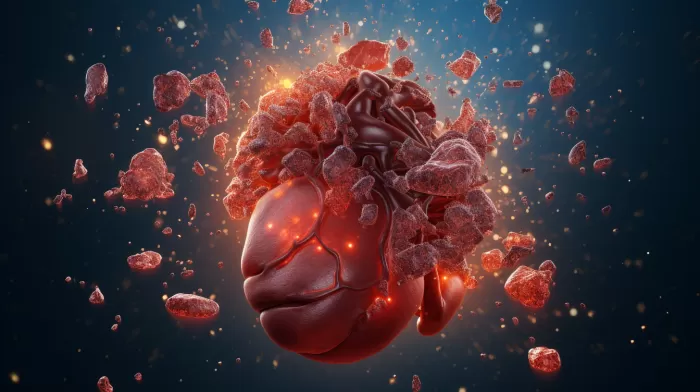The amazing thing about the human body is its ability to bounce back, even when it’s been heavily neglected. However, that same resilience can be a double-edged sword, eventually catching up to us and leading to various diseases. In today’s fast-paced world, it’s no surprise that we see more and more health issues cropping up at alarming rates.
A Dangerous but Overlooked Liver Disease
One particularly widespread but largely ignored health issue affecting many people is nonalcoholic fatty liver disease (NAFLD). This liver disease starts with fat building up in the liver. Roughly 30% of adults have NAFLD, and for 30% of this group, it may result in severe liver disease or even death.
Before progressing to that stage, NAFLD can wreak havoc on your body’s metabolic processes. The fat that accumulates in your liver promotes insulin resistance, which can lead to metabolic syndrome (including obesity, high cholesterol, and high blood pressure) and diabetes.
Additionally, your liver health may be at the root of other symptoms you’re experiencing. Some of these symptoms include:
- High LDL cholesterol and triglycerides
- Bad breath
- Facial flushing
- Digestive problems such as indigestion, reflux, nausea, and constipation
- Depressed mood
- Brain fog
- Allergies
These symptoms are diverse enough that your doctor may not connect them all back to your liver, and the care it needs may be overlooked. Instead, you could end up with multiple prescriptions that try to address each symptom individually.
Medications: A Double-Edged Sword
Unfortunately, what many people don’t realize is that there is no drug to treat NAFLD. Moreover, some of the medications commonly prescribed for symptoms could actually make you feel worse. For example, statins have been shown to have various adverse muscular effects, increase the risk for Parkinson’s disease, type 2 diabetes, and invasive breast cancer, among others.
If you’re taking medications without treating the core issue, you won’t see lasting health improvements and might even risk further damage. So, what’s the solution?
Preventing and Reversing NAFLD
The root of the issue often lies in the sugars, particularly high-fructose corn syrup, that are found in so many of our foods. As we gain weight from consuming these processed items, the liver starts accumulating extra fat.
The most effective way to prevent or reverse NAFLD is to avoid processed foods filled with refined ingredients, sugars, toxic additives, and high fructose corn syrup. Replace these unhealthy options with fresh, natural, whole foods that support liver and metabolic health.
Maintaining a low body weight through regular exercise is also essential. Aim for at least 30 minutes of moderate exercise per day, or 15 minutes of high-intensity exercise.
The Importance of Fat-Soluble Vitamins
It’s crucial to also pay attention to your vitamin status, particularly fat-soluble vitamins A, D, E, and K. Liver issues can disrupt bile acid balance or production (bile acids are created by your liver), which can in turn lead to vitamin deficiencies since bile is necessary for the absorption of fat-soluble vitamins.
Research has shown that individuals with metabolic syndrome may need double the amount of vitamin E. Vitamin D deficiency has also been linked to NAFLD. Furthermore, your liver stores around 80% of your vitamin A, so imbalances may arise as well.
Underlying vitamin deficiencies can make health problems worse, creating a catch-22 cycle. So, always ensure you’re monitoring your vitamin levels closely!
Additional Support for Liver Health
Other beneficial nutrients and substances for liver health include omega-3 fatty acids, specific antioxidants, and milk thistle. For more information and guidance on liver health, consider picking up Dr. Michael Cutler’s book, Better Liver Health.



